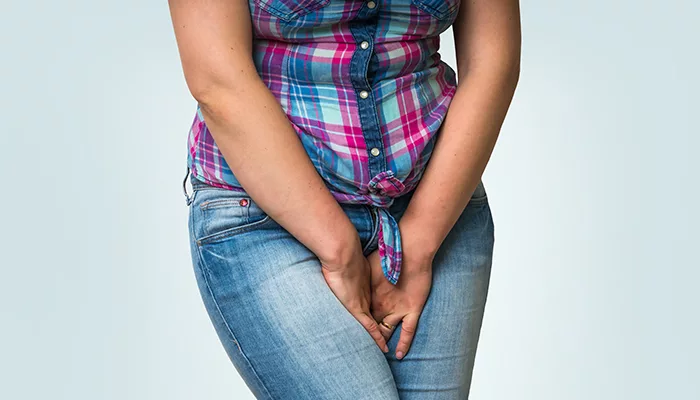Urinary Incontinence In Females- Symptoms, Causes And Treatment
December 26, 2020
Urinary Incontinence in Females- Symptoms, causes and treatment
The loss of bladder control, or urinary incontinence, is a common problem and an awkward one as well. The condition can range in terms of severity, from a sudden urge to urinate to urine leakage while sneezing or coughing. It is usually more common among the more aged women, although it isn’t necessarily caused by aging. For some women, the condition has an effect on their day-to-day activities, becoming a cause of embarrassment.
Symptoms
Some women lose urine on a frequent basis while others might just experience minor urine leaks occasionally. There are different types of urinary incontinence, including:
- Stress incontinence: Activities which exert pressure on the bladder like sneezing, coughing, laughing, lifting heavy materials or exercising cause urine leakage.
- Urge incontinence: An involuntary urine loss is caused after an intense and sudden urge to urinate. There might be a need of urinating more frequently, even throughout the night. This time of urinary incontinence might be caused by a severe condition like diabetes or neurological disorder, or by something as minor as an infection.
- Overflow incontinence: Constant or frequent urine dribbling caused by bladder not completely emptying.
- Functional incontinence: You may not make it to the toilet in time due to a mental or physical impairment. For instance, someone with arthritis might not be able to unbutton their pants in time.
- Mixed incontinence: In this case, the individual experience multiple types of urinary incontinence.
The nature of the condition is such that most people would be uncomfortable talking about it with your doctor. However, if the condition is too frequent or affects the quality of life, it is essential to seek medical attention. The condition might be an indication of another serious underlying condition. Also, if it is left untreated, it might get worse, further restricting your daily activities.
Causes
Urinary incontinence is a symptom itself rather than a disease. It is usually caused by daily habits, physical problem or an underlying medical condition. A doctor can help diagnose the cause of the problem.
Certain medications, foods and drinks might stimulate the bladder and increase urine volume, acting as diuretics. These include:
- Caffeine
- Alcohol
- Sparkling water and carbonated drinks
- Artificial sweeteners
- Chilli peppers
- Chocolate
- Foods that is high in acid, spice or sugar, particularly citrus fruits
- Blood pressure and heart medications, muscle relaxants and sedatives
- Vitamin C in large doses
Certain medical conditions like urinary tract infection and constipation might also be the cause of urinary incontinence.
Some physical issues or changes may also cause urinary incontinence to be a persistent condition, including:
- Pregnancy
- Childbirth
- Changes with age
- Menopause
- Hysterectomy
- Enlarged prostate
- Prostate cancer
- Obstruction
- Neurological disorders
Treatment
Factors like severity of urinary incontinence, its type and cause play a role in determining the treatment. In case it is caused by an underlying condition, the doctor will begin with treating that condition. Usually, it is recommended to begin with the least invasive treatment options before moving to other treatments. Your doctor may recommend behavioural techniques like bladder training, double voiding, scheduled toilet trips, pelvic floor muscle exercises and managing diet and fluid intake. If these don’t work, you can move to medications or even interventional therapies.
Urinary incontinence in females is a condition in which a woman experiences involuntary leakage of urine. It is a common condition that can affect women of all ages, although it is more common in older women.
NOTICE BOARD
CONTACT US
CONTACT US
 Book Appointment
Book Appointment


.svg)
.svg)
.svg)
.svg)








